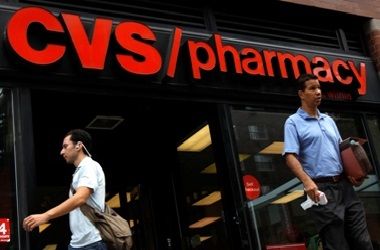Despite the recent high-grade spread rally, CVS Health bonds have slowly and steadily moved wider after a lacklustre earnings report raised concerns over the debt-laden company’s profits and is ability to deleverage.
CVS bonds spreads initially widened 5bp following its earnings report on February 20 and since then have moved out another 15bp to erase any gains made during the investment-grade rally this year, according to MarketAxess data.
Debt at the company soared last year as it completed a US$69bn acquisition of Aetna and tapped the bond market for US40bn in order to fund it.
With the acquisition complete, CVS signaled during the earnings report that it was a bit behind on meeting its targets to pay down outstanding bonds, which according to Refinitiv, amount to US62.9bn.
“This is going to be levered for a while and maybe longer than we initially thought,” CreditSights Analysts James Goldstein told IFR.
“How long will people sit in this levered story if things don’t pan out as CVS plans in 2020?”
Lower profit forecasts and new free cashflow estimates would put 2019 year-end lease adjusted leverage at around 4.8 times, which requires CVS to “over-deliver” next year to meet its 3.5 times deleveraging target by the end of 2020, according to CreditSights.
Bonds have widened since the earning release, with the 4.3% 2028s trading as high as 188bp over Treasuries from a low of 149bp prior to February 20.
“That’s in the ballpark of where it is going to land,” Goldstein said. “It could widen a little more but I don’t think it is going to continually leak out.”
As of Wednesday’s trading, several near term maturities continued to push mildly wider, according to MarketAxess data.
The widening took place against a massive 31bp rally in the investment-grade space year to date, which saw average credit spreads tighten to as low as 127bp over Treasuries from 132bp on the day of CVS’s earnings.
CVS had already halted share buybacks, but could still cut its dividend payments if the situation deteriorated further.
“[Pausing or cutting the dividend] is an escape pod if they need to achieve more deleveraging, but it is not in the plan currently,” Goldstein said.
“They are hoping they pull back the layers, realise the synergies and hope they can over deliver on their promises.”
